|
|
|
Книги издательства «Ardis»

|
The stories collected here, available for the first time in paperback, represent a sampling of the prose that first established Bulgakov as a major figure in the literary renaissance of Moscow in the 1920s, long before he became known as an influential playwright and novelist. The centerpiece of this collection is the long story 'Notes on the Cuff,' a comically autobiographical account of how the tenacious young writer managed to begin his literary career despite famine, typhus, civil war, the wrong political affiliation, and the Byzantine Moscow bureaucracy. This stylistically brilliant work was only partially published during Bulgakov's lifetime due to censorship but was immediately recognized by the literati as an important work. |

|
Inspired by Gogol's surreal tales, Dostoevsky's hilarious story has been interpreted by some as a vitriolic piece of social criticism The civil servant Ivan Matveyich and his wife Elena Ivanovna are spectators of an exhibition — in a shopping arcade — of a crocodile owned by a German, when Ivan is suddenly swallowed alive by the animal. Unsuccessful in his attempts to be freed from his prison, due to the German's concern for his crocodile and excessive desire for compensation, the civil servant gradually comes to appreciate his new environment, while his wife begins to enjoy her newfound freedom. |

|
ly, Blok, Sologub, Annensky, and their contemporaries may be best known for writing influential verse and narrative prose. However, they also authored Symbolist plays, thus collectively adding to a revolutionary new Russian performance style. This is an extensive anthology of their works, including several first English play translations, detailed prefaces, and critical essays on the theatre. |

|
Vladimir Makanin, one of the most acclaimed writers of today's Russia, examines the fates of ordinary people of the future — or is it the present? — in these two brilliant novellas. Makanin's characters are caught in surreal situations which test their ability to retain their humanity, sometimes at a terrible price. |

|
One of the delights of Russian literature, a tour de force that has been compared to the best of Nabokov and Bulgakov, Yuri Olesha's novella Envy brings together cutting social satire, slapstick humor, and a wild visionary streak. Andrei is a model Soviet citizen, a swaggeringly self-satisfied mogul of the food industry who intends to revolutionize modern life with mass-produced sausage. Nikolai is a loser. Finding him drunk in the gutter, Andrei gives him a bed for the night and a job as a gofer. Nikolai takes what he can, but that doesn't mean he's grateful. Griping, sulking, grovelingly abject, he despises everything Andrei believes in, even if he envies him his every breath. Producer and sponger, insider and outcast, master and man fight back and forth in the pages of Olesha's anarchic comedy. It is a contest of wills in which nothing is sure except the incorrigible human heart. Marian Schwartz's new English translation of Envy brilliantly captures the energy of Olesha's masterpiece. -This text refers to an alternate Paperback edition. |

|
The Naked Year follows the provincial town of Ordinin through 1919, a year of war, illness, and tumultuous change. The village and its inhabitants merchants, nobles, peasants, and communists alike experience first-hand the impact of the violent revolutionary struggle of the Reds, Whites, Blacks, and Greens, until their world eventually dissolves into chaos. |

|
«This is the widely acclaimed translation of one of the outstanding and seminal works of Russian literature. Pushkin's «novel in verse» has influenced Russian prose as well as poetry since its completion nearly 175 years ago. By turns brilliant, entertaining, romantic, and serious, it traces the development of a young Petersburg dandy as he deals with life and love. Influenced by Byron, Pushkin reveals the nature of his heroes through the emotional colourations found in their witty remarks, nature descriptions, and unexpected actions, all conveyed in stanzas of sonnet length (a form that became known as the Onegin Stanza), faithfully reproduced by Walter Arndt in this prize-winning translation. Includes extensive introduction, notes, and four critical essays.» |

|
Translated by Bollingen Prize winner Walter Arndt, Pushkin Threefold is the acclaimed edition of Pushkin's poems that includes three versions of each poem — the original Russian, a close translation into English, and a poetic verse translation reproducing as faithfully as possible the form, spirit, and flavor of the original. This indispensable volume contains 74 shorter poems; 'Tsar Nikita and His Forty Daughters'; 'The Bridegroom'; 'Count Nulin'; 'Tsar Saltan'; 'The Bronze Horseman'; and 22 stanzas from Eugene Onegin. |

|
A brilliant new translation of a perennial favorite of Russian Literature The first major Russian novel, A Hero of Our Time was both lauded and reviled upon publication. Its dissipated hero, twenty-five-year-old Pechorin, is a beautiful and magnetic but nihilistic young army officer, bored by life and indifferent to his many sexual conquests. Chronicling his unforgettable adventures in the Caucasus involving brigands, smugglers, soldiers, rivals, and lovers, this classic tale of alienation influenced Tolstoy, Dostoyevsky, and Chekhov in Lermontov's own century, and finds its modern-day counterparts in Anthony Burgess's A Clockwork Orange, the novels of Chuck Palahniuk, and the films and plays of Neil LaBute. |
|